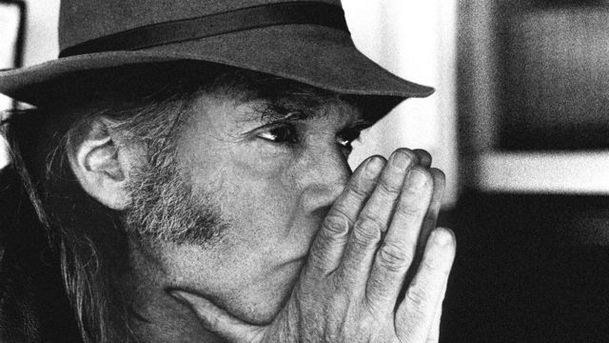Neil Young: Don't Be Denied

Neil Young grants rare and unprecedented access to the BBC for a documentary in which he traces his musical journey in his own words. The film was made from three hours of interview shot in New York and California, and uses previously unseen performance footage from the star's own extensive archives. It also features cohorts Stephen Stills, Graham Nash, David Crosby, Nils Lofgren and James Taylor. From his early transcontinental American quest for recognition, through the first flush of success with Buffalo Springfield, to the bi-polar opposites of mega-stardom with Crosby, Stills and Nash and the soulful rock of Crazy Horse, Young's career has enjoyed many guises. Perhaps his most famous period was as a 1970s solo artist making albums that became benchmarks. After The Goldrush, recorded in his Topanga Canyon home, and Harvest, part-recorded on his northern Californian ranch, saw Young explore the confessional side of song-writing. But never one to rest on his laurels, he would continually change direction. In the mid-seventies, two of Young's closest friends died as a result of heroin abuse. What followed was music's answer to cinema verite, with Tonight's The Night a spine-chilling wake for his dead friends. As New Wave arrived, Young was keen to explore new ideas. A collaboration with Devo on what became his art-house epic, Human Highway, saw the genesis of Rust Never Sleeps, a requiem for the seventies. In the eighties, Young explored different genres, from electronica to country, and in recent times he has returned to Crazy Horse and Crosby, Stills and Nash, but only when it has suited him. The film ends with Young still refusing to be denied, on tour in the USA with CSNY, playing anti-Bush songs to a Republican audience in the South.